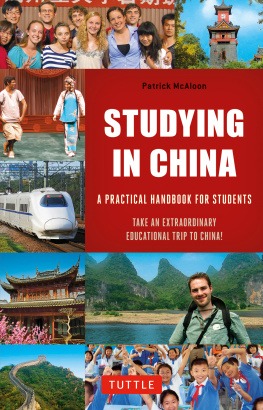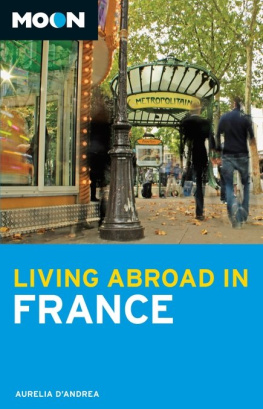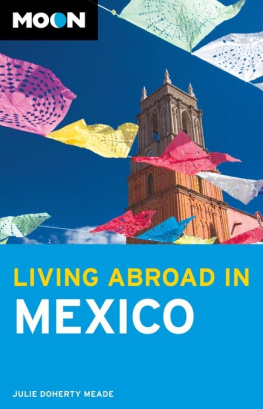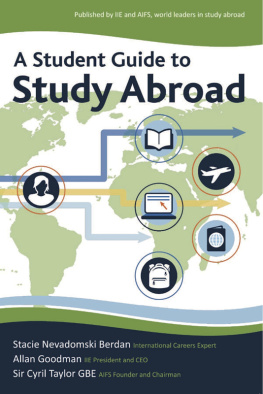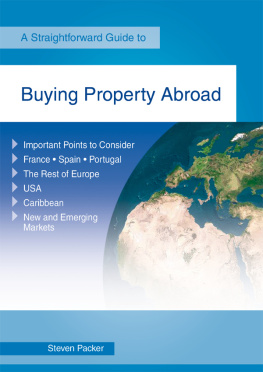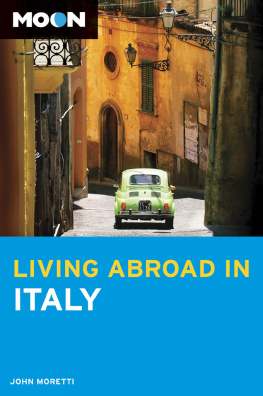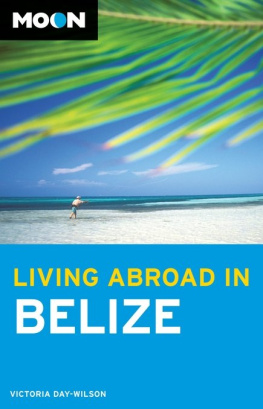GOING ABROAD
GOING ABROAD
Traveling Like an Anthropologist
Robert Gordon
First published 2010 by Paradigm Publishers
Published 2016 by Routledge
2 Park Square, Milton Park, Abingdon, Oxon OX14 4RN
711 Third Avenue, New York, NY 10017, USA
Routledge is an imprint of the Taylor & Francis Group, an informa business
Copyright 2010, Taylor & Francis.
All rights reserved. No part of this book may be reprinted or reproduced or utilised in any form or by any electronic, mechanical, or other means, now known or hereafter invented, including photocopying and recording, or in any information storage or retrieval system, without permission in writing from the publishers.
Notice:
Product or corporate names may be trademarks or registered trademarks, and are used only for identification and explanation without intent to infringe.
Library of Congress Cataloging-in-Publication Data
Gordon, Robert, 1947 April 23
Going abroad : traveling like an anthropologist / Robert Gordon.
p. cm.
Includes bibliographical references and index.
ISBN 978-1-59451-770-9 (hardcover : alk. paper)
ISBN 978-1-59451-771-6 (pbk. : alk. paper)
1. TravelPhilosophy. 2. AnthropologyPhilosophy. 3. Anthropologists
Travel. 4. StudentsTravel. I. Title.
G151.G7 2010
301dc22
2010000840
Designed and Typeset by Straight Creek Bookmakers.
ISBN 13 : 978-1-59451-770-9 (hbk)
ISBN 13 : 978-1-59451-771-6 (pbk)
For
Elizabeth
Rinda
Arusha-marie
Three generations, three styles of travel
Contents
Many people and institutions made this book possible and deserve profound gratitude. Much of my travel abroad has been financed by a variety of sources: the Social Science Research Council, the Maryknoll Missioners, the Wenner-Gren Foundation, the Fulbright Commission, the National Endowment for the Humanities, and even my home institution, the University of Vermont.
I have been blessed with a household that thrives on traveling, even though I sometimes did not have enough time to enjoy the experience abroad with them as much as we would have liked.
Many friends here and abroad also provided ideas, insights, and encouragement: members of the Stowe Anthropological Society, in particular Bill Mitchell and Polly Wiessner, taught me much, and honorary members Mark Pendergrast, Joanne and David Bennett, and David Stoll provided much entertaining enlightenment. Diane deTerra helped with matters linguistic, and Bill Harlow showed me how dumpster diving was a form of travel. Abroad, Lourens Pretorius, Chris van Vuuren, Jeremy Silvester, Casper Erichsen, Aulden Harlech-Jones, Mercedes Ovis, Alberto Zeko, and Larissa Foerster provided enlightening company; Allison Tompkins and Sarah Woodward read drafts of the manuscript and provided a student perspective. Rachel Halper, a talented student artist, developed the sketches that resulted in the cover.
The enthusiasm of Dean Birkenkamp from the start was infectious, and Kathy Delfosse has done an extraordinary copyediting job. My thanks to all!
Going abroad has become even more crucial in this age of instant Internet information. Recent global events have reemphasized the importance of cross-cultural understanding, and none more so than the tragic events of 9/11, which brought to the fore the question, why do they hate us so? And some of the more sensitive Americans realized, they hate us because we dont even know why they hate us. Even the staid U.S. Senate proclaimed 2006 The Year of Study Abroad to emphasize the importance of acquiring foreign-language skills, cultural understanding, and global literacy. Apart from the government and foundations trying to promote global travel, there is also a middle-class grassroots movement, if you will: globalization has whetted the appetite and made global travel more feasible.
There are many different types of travel in this global movement, many of which undoubtedly need to be discussed, but this book is either for those who intend to dig deeper into cultural understanding on a brief visit or for those who intend to spend longer periods abroad with the aim of learning about local people, customs, and cultures. Typically such travelers define themselves as youth, backpackers, or, increasingly nowadays, flash-packers. Flash-packers are older, thirty-something backpackers with a larger budget. These people claim to travel with a purposeusually to volunteer, work, or study abroad or to learn a language, and they report returning home more respectful and tolerant of other cultures. For this mode of going abroad one needs time. Two or three weeks is simply not going to do it. This is why most people who engage in this style of travel are students or professionals just beginning or between careers or, increasingly, early retirees. Outside these situations, extended periods abroad become difficult as responsibilities mount up; kids, the mortgage, and a career take their tollbut not entirely. It is only with retirement that another opportunity for extended travel presents itself.
Nevertheless, even a person traveling abroad for a week or two may benefit from the critical perspective of this book, as may other short- and long-term travelers, including occasional or leisure travelers, study-abroad students, Peace Corps or other volunteers, Fulbright recipients, and almost anyone who wants to learn from his or her travels.
As someone who has studied and observed expatriates and tourists and has counseled countless students studying abroad, and being an inveterate traveler myself, I have always been struck by the diverse impact going abroad has had on travelers (myself included). It ranges from frequently simply reinforcing preexisting stereotypes, to creating the illusion that we have learnt something, to engendering deep-rooted life-altering changes in worldview. Going abroad entails considerable expenditure, financial and otherwise, as well as nagging ethical questions. The goal of this brief book is to suggest some ways in which the traveler can derive greater benefit from going abroad as well as enjoy the experience.
The purpose of Going Abroad: Traveling Like an Anthropologist is to make travel, especially to the so-called third world or southern countries, more productive and intentional, rather than simply reinforcing the colonial stereotyping and denigration of the non-Western world, which happens all too easily in this age of consumerism. This book, then, is for those who want to break out of the commoditized package version of travel abroad, be it a vacation or even a tightly structured and regulated study tour, and use their own initiative to learn and grow while abroad, not only to find out about the people they might encounter but also to at least minimally appreciate and understand the transformations that they themselves might be undergoing. This book is not going to make you into an anthropologist. In fact, if there is one thing that raises my ire, it is an author who claims to be a keen amateur anthropologist. No one claims to be an amateur economist or physician, and such a stance trivializes the important questions that anthropologists ask and the work they do. Rather, this book suggests how an anthropological perspective might possibly help enrich travel abroad.



